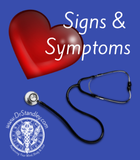Vitamin B6 is a multi-function nutrient which promotes mental and physical health. The body is unable to store B6 so it must be replenished every day. It is soluble in both water and alcohol. It is rapidly inactivated in the presence of heat, sunlight or air. It is essential in the metabolism of tryptophan and is needed for utilization of certain other amino acids. Deficiencies could include dermatitis around the eyes and mouth, carpal tunnel syndrome, neuritis, anorexia, nausea and vomiting. It is needed for the proper absorption of Vitamin B12. It is involved in more bodily functions that any other nutrient.
Supports your immune system and mental clarity. It supports proper blood and body tissues. Promotes healthy nerves, teeth, skin and muscles. It is necessary in the production of antibodies and red blood cells and important in the metabolism and utilization of carbohydrates, proteins and fats. It is also needed for the balance of phosporus and sodium. For regulating body fluids, it balances sodium and potassium. Affects physical and mental health. It may also help for water retention. Has a role in cancer immunity, kidney stones, and arteriolsclerosis. It may reduce the symptoms of PMS and the treatment of some allergies, asthma and arthritis.
None known when taken as directed.
Diuretics and cortisone drugs may block the absorption of vitamin B6.
May be taken daily.
Alfalfa sprouts, avocados, banana, bee pollen, beef, beets, bell pepper, blackstrap molasses, Brewer's yeast, brown rice and other whole grains, buckwheat sprouts, cabbage, cantelope, carrots, chicken, corn, eggs, fish, grains, greens, lemon, meat, nutritional yeast, nuts, oats, oranges, peanuts, peas, prunes, raisins, soybeans, spinach, spirulina, all kinds of sprouts, sunflower seeds, green vegetables, wheatbran, wheatgerm, wheatgrass, whole wheat, and walnuts.


































 VITAMIN B6 - (pyridoxine)
VITAMIN B6 - (pyridoxine)